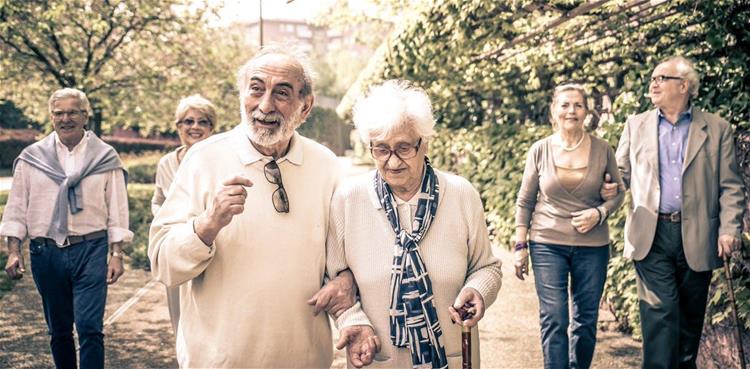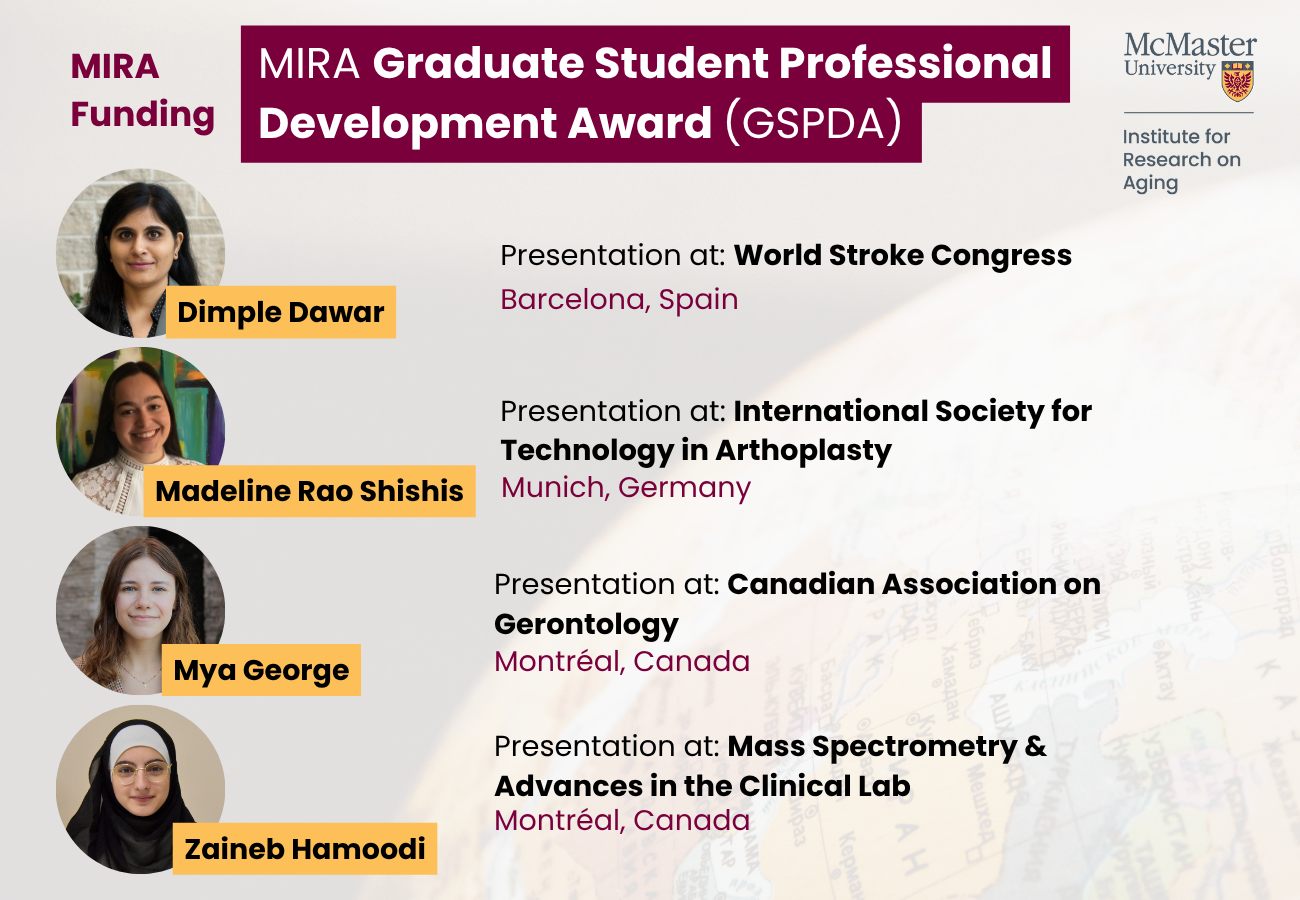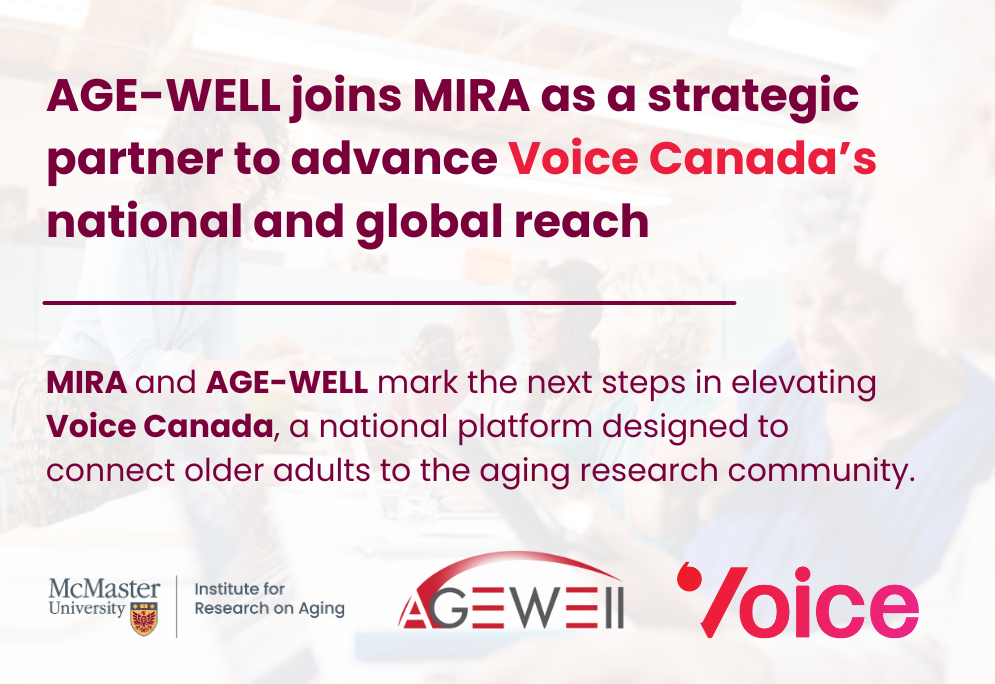

Published October 1, 2018
We are living longer than ever before. According to the United Nations, over 20 percent of the world’s population –a whopping two billion people – will be over the age of 60 by 2050. In order to draw attention to the contributions, needs, challenges and human rights of our aging population, the UN has declared October 1st the International Day of Older Persons.
Most of us would agree that living longer is a good thing – as long as we have our independence, mobility, social connections, financial stability and health. But we know that’s not always the case. Why, then, do some people age better than others? Are there things we can do to help ourselves age well? How do we ensure we not only age well as individuals, but as a community and a broader population?
Researchers from McMaster University’s Institute for Research on Aging (MIRA) are seeking answers to these questions and more. Here are eight ways to age well, according to their findings:
1. Move it or lose it
“Greater levels of physical activity are associated with so many health benefits it is hard to comprehend. From mental health to cancer risk, everything gets better the more physically active you are. I cannot think of a single solitary health behavior that, if adhered to, does as much for your health as being physically active. Move so you don’t lose as you age!”
– Stuart Phillips, Professor, Department of Kinesiology, Faculty of Science
“When it comes to brain health, a certain amount of fate is determined by biological factors. However, physical activity has been linked to a reduction in the risk of dementia, which means there is opportunity for us to train for a healthier brain! More research is needed, but there is evidence to suggest that physical activity early in life can impact brain health later in life.”
– Jennifer Heisz, Associate Professor, Department of Kinesiology, Faculty of Science
2. Advocate for your own well-being
“The results of our research in the Aging, Community and Health Research Unit at McMaster University have demonstrated the importance of staying physically and mentally active, remaining socially engaged in family and community activities and advocating for your own health, or having a caregiver advocate for you.”
– Jenny Ploeg, Professor, School of Nursing, Faculty of Health Sciences & Maureen Markle-Reid, Canada Research Chair and Professor, School of Nursing, Faculty of Health Sciences
3. Stay engaged in the arts and social activities
“Staying engaged in activities with friends and community members is key to aging well. Research also suggests that art stimulates us in unique ways, bringing both cognitive and mood benefits. Exercise, art and engagement appear to work synergistically. Together, it’s a cocktail for health!”
– Paula Gardner, Associate Professor, Communication Studies and Multimedia, Faculty of Humanities
4. Listen, with empathy
“In order to age well, we need to be humble and empathetic listeners. Prior to engineering solutions, we need to first understand the needs, wishes and stories of our older population.”
– Robert Fleisig, Associate Professor, W Booth School of Engineering Practice and Technology, Faculty of Engineering
“As the percentage of the 60+ population becomes larger, engineers and designers should be required to consider and listen to this group regardless of whether designing a TV, a home, a community or a city.”
– Qiyin Fang, Professor, Department of Engineering Physics, Faculty of Engineering
5. Prepare for later retirement
“It is expected that more and more people will retire later, which means design considerations need to be extended to the work place.”
– Qiyin Fang, Professor, Department of Engineering Physics, Faculty of Engineering
6. Address disadvantages and inequalities
“Ensuring ‘well-aging’ requires a social and political commitment to address inequality, meet older people’s needs, and ensure that all older people have access to resources and supports that are just, and facilitate well-being.”
– Amanda Grenier, Chair, Gilbrea Centre for Studies in Aging, Professor, Department of Health Aging & Society, Faculty of Social Sciences
7. Learn from the past
“Using existing data and advanced data analytics, we can learn from the past to make a better future. We can prevent what went wrong and promote what went well. Linking past to future will also help us in predicting future needs so that we can become more proactive with innovations that help us age well.”
– Manaf Zargoush, Assistant Professor, Health Policy & Management, DeGroote School of Business
8. Seek joy, purpose and enlightenment
“To ensure we age well, we need opportunities and space to engage in activities and practices that bring us joy and help us gain a better understanding of who we are, our relationship with others, and our purpose in society.”
– James Gillett, Associate Dean, Grad Studies and Research, Associate Professor, Department of Health Aging & Society, Faculty of Social Sciences
“We know that remaining engaged in the world around us improves our mood, health and happiness; but for some, finding purpose and meaning in everyday life can be challenging. So, ask yourself, ‘What brings you joy?’ The ‘occupations’ at the crux of your response may be the key to aging well.”
– Brenda Vrkljan, Associate Professor, Rehabilitation Science, Faculty of Health Sciences
For more tips on how to age well, visit the McMaster Optimal Aging Portal. The Portal is a free online health resource that shares trustworthy scientific evidence about the health and social aspects of aging through easy-to-understand blog posts and articles.
The McMaster Institute for Research on Aging (MIRA) aims to optimize the longevity of Canada’s aging population through research, education and collaboration. Interdisciplinary teams work alongside older adults and key stakeholders to find ways that will help Canadians spend more years living well. MIRA also acts as a robust entry point to some of McMaster’s existing research platforms in aging, including the Labarge Centre for Mobility in Aging and the McMaster Optimal Aging Portal.
McMaster University, one of four Canadian Universities listed among the world’s Top 100 universities, is dedicated to creating a brighter world by advancing human and societal health and well-being. In 2017, it became the second post-secondary institution in Canada to join the international Age-Friendly University (AFU) network, a global body of colleges and universities committed to being more accessible to people of all ages.

